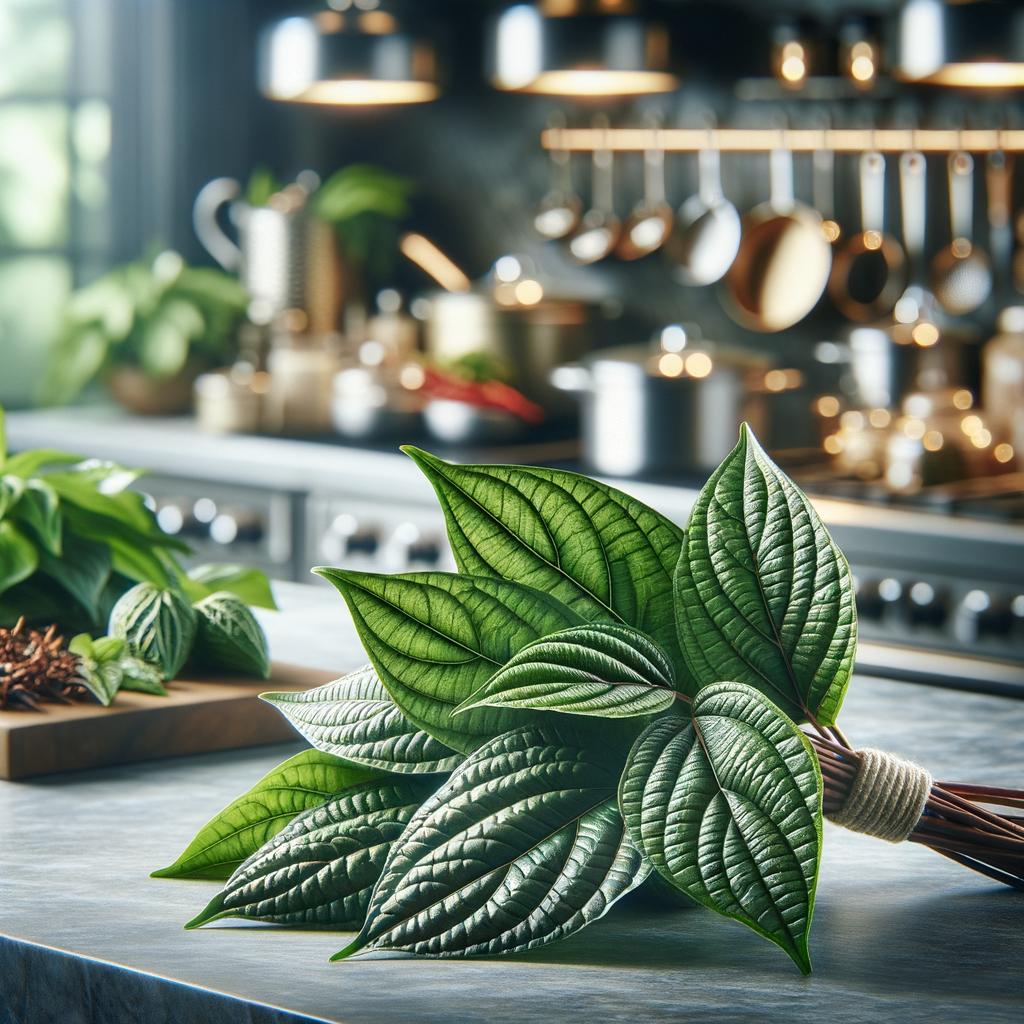Betel Leaves

Betel Leaves
Description
Betel leaves, also known as Piper betle, are heart-shaped leaves that hail from the Piperaceae family. They are a vibrant, glossy green in color, with a texture that is smooth yet firm to the touch. When it comes to flavor, betel leaves offer a unique combination of peppery and slightly bitter taste, with a hint of grassy freshness. They are known for their strong, pungent aroma that becomes more pronounced when the leaves are crushed or chewed. One of the unique characteristics of betel leaves is their dual nature - they are both a culinary delight and a medicinal treasure.
Primary Uses
In the culinary world, betel leaves are a versatile ingredient. They are commonly used in Southeast Asian and Indian cuisines. In Vietnam, they are a key component of 'Bò lá lốt', a dish where beef is wrapped in betel leaves and grilled. In India, they are used in 'Paan', a traditional mouth freshener made by wrapping various fillings in a betel leaf. Beyond their culinary uses, betel leaves hold cultural significance in various Asian cultures, often used in religious ceremonies and traditional rituals. They also have a range of medicinal uses, known for their digestive, antiseptic, and stimulant properties.
History
The history of betel leaves is as rich as their flavor. They have been cultivated in South and Southeast Asia for over 2000 years. Their use in these regions is deeply woven into the fabric of society, with references found in ancient Sanskrit texts. The leaves were traditionally offered as a mark of respect and hospitality towards guests. Over time, the use of betel leaves evolved, and they became a popular ingredient in various culinary delights. There are numerous folklores associated with betel leaves, one of them being that they were considered a symbol of love in ancient Java.
Nutritional Information
Nutritionally, betel leaves are a powerhouse. They are rich in vitamins like vitamin C, thiamine, niacin, riboflavin, and carotene. They also contain a good amount of minerals like calcium, potassium, and phosphorous. Regular consumption of betel leaves can aid digestion, improve oral health, and have potential anti-cancer properties. However, it's important to note that they are often consumed with areca nut and tobacco, which can have harmful effects. When compared to other leafy greens, betel leaves have a higher concentration of phenolic compounds, contributing to their strong antioxidant properties.

